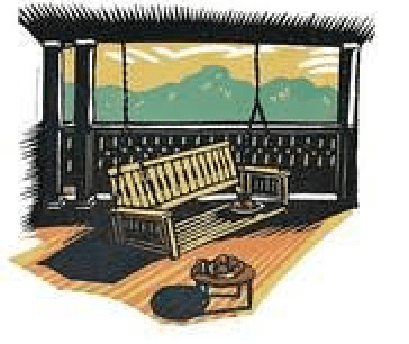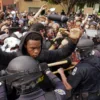PragerU uses Black faces to push its anti-Black narratives
Commentary by Black Kos Editor Denise Oliver-Velez
I have to admit that when I see Black faces being used by white supremacists to push their right-wing bullshit narratives I get totally pissed. The quislings who actively participate are race-traitors — tap dancing to an ugly tune that ain’t music to my ears. I get even angrier when the tool-fools are Black women.
PragerU,which is not a University, and was founded by right-wing radio talk show host Dennis Prager — has been gaining in influence — infiltrating public education systems in Florida, Oklahoma, and now Montana, and has skillfully used social media platforms to spread its “anti-woke” messaging. They’ve got Candace Owens, splainin’ slavery and absolving white folks.
Sister Kali Holloway, columnist for The Daily Beast and The Nation excoriated her back in 2020: “Candace Owens Is a Willing Tool of Republican Racists”
Owens isn’t actually there to be white conservatives’ emissary to the Black community. Rather, she’s a tool of racist propaganda and deflection—a Black mouthpiece who propagates and validates anti-Black talking points, while exploiting her own race to shield white racists, like Trump, from charges of racism.
Owens gets trotted out when white conservatives want to illustrate their idea of a “good” Black— willing to label Black culture pathologically “broken,”claim Black people are “pretending to be oppressed,” and smear Black Lives Matter as “domestic terrorists.” (And also, to misquote Harriet Tubman in a glorious display of historical ignorance and whites supremacist revisionism intent on construing Black folks as their own oppressors.) Owens is the tokenized Black messenger white racists rely on to discredit millions of other Black voices demanding racial justice, whom they had no interest in hearing or heeding anyway. Her transformation into Republicans’ Black mascot just proves that their gestures toward Black voters are always made in bad faith.
The young Black face selected by Prager to place the blame for systemic racism squarely in the lap of the left, is that of Amala Ekpunobi, described as a “social media influencer” who is being touted as a former leftist who has “seen the light” and embraced conservatism. She was interviewed on PBS “To the Contrary” by host Bonnie Erbé in January of 2022. She was 21 at the time.
Child of a Nigerian immigrant father and white mother she does not identify as Black — she’s bi-racial. She didn’t think Jan 6 was an insurrection. She blames the media for distorting Trump’s image. Erbé asks her “Do you support President Trump? She replied, “In many ways? I do. I don’t think his rhetoric or his mouth came to help him in any way, shape or form. But I do think there was a lot of policies that he instituted during his presidency that was quite helpful.”
Listening to her —I think the chile has real issues…with being Black. Like Candace Owens, she’s opted for white approval.
Here’s her PragerU “How to End Systemic Racism” video:
There is systemic racism in this country.
And people of color are paying a terrible price because of it.
The elites who have instigated this moral crime deserve to be exposed for what they’ve done.
The sooner we call attention to them…
The sooner we expose their regressive ideas…
The sooner we live in a more just society.
No truth. No peace.
Here’s how bad it is.
At Columbia University black students have a separate graduation from white students. In many other colleges, black students are encouraged to live in their own separate dorms.
Students in many New York City government schools are separated by color during the school year.
State governments put regulations in place that make it harder for minorities to start businesses.
A national museum declares hard work and ambition to be white values.
One of America’s two major political parties assumes that many black people are incapable of obtaining a driver’s license or an ID card.
In Oregon, black students are told that math is a white construct—all but guaranteeing failure in this essential skill.
In Baltimore less than 10% of minority students can read at grade level—all but guaranteeing failure in this essential skill.
In Oakland, no student is allowed to get a D or an F. Instead, everyone is simply promoted to the next grade whether they know the material or not.
City councils demonize their own police departments, then vote to cut police budgets. Crime and murder skyrocket. The victims are almost all minorities.
Prosecutors refuse to prosecute hardened criminals. Instead, they let the criminals back on the streets to prey on law-abiding, hard-working citizens, again, mostly black people.
That’s only a few of many examples.
It’s shocking but commonplace.
Every day in every major city, people of color are living in this oppressive, patronizing environment. These prejudices—literally prejudgments—make it more and more difficult for black people and other minorities to improve their lives—the very opposite of what the goal should be.
In other words, the very people claiming to have black people’s and minorities’ best interests at heart are instituting the very policies and attitudes that are holding them back.
Sounds like systemic racism to me.
And it makes you think that we’re not moving forward as a pluralistic, equal-opportunity nation, but backward into Jim Crow.
Now, here’s the kicker.
It’s not those horrible, nasty, bigoted, misogynistic, authoritarian nationalists on the right who are imposing these crushing rules and policy prescriptions; it’s the woke left.
The side that I revered as a beacon of tolerance, the side that I thought was on the right side of history, up until a few years ago.
In fact, I was so committed, I got a “Black Lives Matter” tattoo.
I still have it.
But then I had to face reality.
It’s the ideology of the left that has set back young students of color with lower education standards. That calls for pulling cops out of high crime areas and replacing them with social workers… That states that skin color is more important than character—more important than anything.
Yes, it is the woke left that is systemically racist.
Not America.
The race hoax epidemic is proof. There have been dozens of these hoaxes over the last few years.
Nooses on garages, the N-word on dorm rooms, “this is MAGA country” taunts on cold city streets—virtually every one of them has been faked.
The demand for racism exceeds the supply.
If racism against black people or any other minority group was rampant, you wouldn’t have to fake it to convince people how “bad” things are.
Did anyone fake racism in the South in the 1950s?
But there’s so little now that the race-obsessed woke left has manufactured “unconscious racism” and “microaggressions” to fool people into believing America is “systemically racist.”
That’s not to say racism doesn’t exist. Of course it does. There will always be small-minded people. But their numbers are as small as their minds.
And in case you’re thinking of George Floyd, please know that even Minnesota’s leftist Attorney General admitted the incident had nothing to do with Floyd being black.
My father and millions of Africans didn’t immigrate to America so that they could live in a racist society. They immigrated so that they could have opportunities that were only available to them here.
So, to all the leftists out there, I understand why you believe what you believe—I was once one of you—but it’s time to ask yourself some questions.
Is it really helping black people to tell them they’re not as responsible for their actions as anyone else?
Isn’t it condescending, if not outright bigoted, to expect less from somebody purely based on their race?
Isn’t it clear that we should judge each person on their merits, not their skin color?
Wouldn’t that do more to create an equitable society than a hundred government programs?
Yes, there really is systemic racism. And it’s hurting the country. But it’s not coming from the direction you think.
Once you realize that, everything changes.
I’m Amala Ekpunobi for Prager University.
Young adults are her target, but don’t forget that PragerU is also focusing on young children— via Prager Kids. Last August, Alan Singer covered one of those programs here at Daily Kos.
“Leo & Layla’s History Adventures with Frederick Douglass” is a seven-minute trip back to 1852 where they interview Mr. Douglass, a former slave and African American abolitionist, in what “PragerU” describes as “an honest and accurate look at slavery and a lesson on how to create change.” The video starts with Leo and Layla sitting on a bed watching a mock television news broadcast about “violence and destruction” caused by “angry activists” who want to “abolish the police” and tear down the U.S. system. Leo says they are talking about social justice in his math class and Layla responds that math class is supposed to be about math. Leo asks Layla what abolish means, which leads to a factually flawed history lesson about the 19th century movement to end slavery in the United States. Layla mistypes abolitionist into her magic cell phone which transports the two adventurers into the past where they meet Frederick Douglass. They ask Douglass if he can help them learn about activism and abolishing things. The ensuing conversation between Douglass and the adventurers presents a very distorted history of slavery and the United States.
Thanks to Media Matters, you don’t have to wade through all their videos to see what they are propagandizing.
Research file: We watched every PragerU Kids video. Here are the lowlights
I hope folks are paying attention to the dangers of the PragerU agenda — they are anti-everything and everyone we hold dear. Speak out, and fight back — and call-out their puppets.
~~~~~~~~~~~~~~~~~~~~~~~~~~~~~~~~~~~~~~~~~~~~~
News round up by dopper0189, Black Kos Managing Editor
~~~~~~~~~~~~~~~~~~~~~~~~~~~~~~~~~~~~~~~~~~~~~~~
~~~~~~~~~~~~~~~~~~~~~~~~~~~~~~~~~~~~~~~~~~~~~~~~

Akron is now trying to reimagine a mile-long section of the city’s Innerbelt freeway that devastated several neighborhoods. Wall Street Journal: An Akron Highway Cut Off a Black Community. The City Is Trying to Fix It.
~~~~~~~~~~~~~~~~~~~~~~~~~~~~~~~~~~~~~~~~~~~~~~~~
A freeway built in the 1970s through a Black community in Akron was supposed to reinvigorate the city’s downtown, but instead it became known as the “road to nowhere” that devastated several neighborhoods.
The stretch of road was closed to traffic in 2017 and is bare except for some weeds. But it still separates a mostly Black neighborhood from the commercial and cultural life of downtown.
The Akron freeway was designed to be a “high speed, high efficiency, industrial connection” for 120,000 daily cars from the mostly white suburbs to a downtown that officials wanted to revitalize. Hundreds of Black families were forced to move when the city seized property, while others saw their home values plummet.
Black families in Akron, many of whom had migrated from the South to work in the rubber industry, lost wealth tied to their homes. Some were forced to relocate, while others remained in an area that lost value when it was cut off by the freeway because planners didn’t include connections to their neighborhoods.
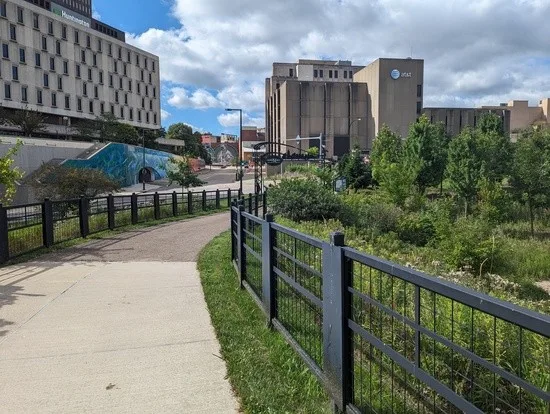
~~~~~~~~~~~~~~~~~~~~~~~~~~~~~~~~~~~~~~~~~~~~~~~~

Louisiana is among multiple states still wrangling over congressional districts. Talking Point Memo: Lawyers Try To Convince Resistant 5th Circuit That Louisiana Is Slow-Walking Map Process On Purpose
~~~~~~~~~~~~~~~~~~~~~~~~~~~~~~~~~~~~~~~~~~~~~~~~
When the Louisiana case started moving again after that decision, the district court that had blocked the state’s map as another likely Voting Rights Act violation called for a hearing to start crafting a remedial replacement map, should the preliminary injunction stand. In a last ditch effort to delay redrawing, Louisiana officials asked a different 5th Circuit panel to cancel that hearing — and in an extraordinary turn of events, the panel complied.
Friday’s hearing was centered on the state’s attempt to overturn the preliminary injunction.
Throughout, lawyers for the map’s challengers tried to impress upon the panel that the Louisiana officials have an ulterior motive, that their desire to unblock the likely unconstitutional map and put on a full evidentiary hearing in late winter is part of an attempt to stall redrawing. If they can slow-walk the procedure enough, they might get close enough to the election to argue that there isn’t time to draw up a new map.
The lawyers harped on the state’s refusal to name a date by which the secretary of state needed a new map in place to run the election so much that the state officials’ lawyers were forced to produce one.
They often pointed to a case proceeding concurrently in Alabama, the same one that got up to the Supreme Court. There, state officials tried similar delay tactics, refusing to craft a remedial map and instead firing off time-consuming appeals. On Thursday, a panel of federal district judges ordered Alabama officials to use a special master’s map.
While it should have been a helpful example for the plaintiffs, the two conservative 5th Circuit judges on the Louisiana panel were not convinced (the third, a Jimmy Carter appointee, beamed in via Zoom and didn’t speak during the proceedings).
Judge Leslie Southwick said that what happened in Alabama after the Supreme Court’s ruling is “useful to consider, but it is certainly not controlling on us,” adding, “isn’t there time for us to do this in a more measured way?”
The Louisiana officials here seem to be thinking towards the Purcell “principle,” the very inconsistently applied notion that changes to election rules shouldn’t happen too close to elections because it risks voter confusion and administrator burden. The Supreme Court, though, has resisted providing any explanation about when is too close — perhaps bolstering the state’s hopes that if they can delay to within several months, they’ll wriggle out of having to produce new maps.
“There’s a real timing crunch before the state runs out the clock again — and there’s already been an election that’s taken place under maps found preliminarily to be discriminatory,” Justin Levitt, a professor at Loyola Law School and former White House senior policy advisor for democracy and voting rights, told TPM. He was referring to the 2022 elections, which were
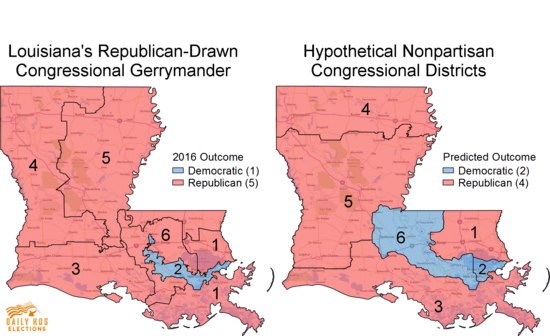
~~~~~~~~~~~~~~~~~~~~~~~~~~~~~~~~~~~~~~~~~~~~~~~~

The interests of Mississippi’s 40% Black population have been underserved, Presley says. The Grio: Mississippi Democrat Brandon Presley aims to rally Black voters in governor’s race
~~~~~~~~~~~~~~~~~~~~~~~~~~~~~~~~~~~~~~~~~~~~~~~~
Mississippi’s gubernatorial election could hinge on turnout among Black voters, who haven’t wielded political influence commensurate to their share of the state population, the Democratic nominee said Friday.
At a campaign event in the 80% Black state capital of Jackson just over one month before Election Day, Brandon Presley said Black voters could help carry him to victory. He also accused incumbent Republican Gov. Tate Reeves, who is seeking reelection, of hoping they stay home.
“Black Mississippi and white Mississippi have been purposefully, strategically and with intent divided over racial lines. Intentionally divided for two things: Money and power,” Presley said. “Tate Reeves and that sleazy little crowd he runs around with are sitting over there today hoping that Black voters do not come vote in November.”
Speaking to a crowd at a blues club in Jackson’s Farish Street Historic District, Presley said the interests of Mississippi’s 40% Black population — the largest of any state by percentage — had been underserved during Reeves’ term. Roughly a quarter of Jackson residents live in poverty, and its tax base has eroded the past few decades amid mostly white flight to suburbs.
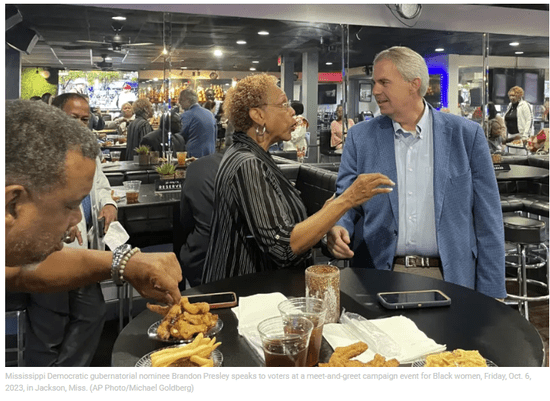
~~~~~~~~~~~~~~~~~~~~~~~~~~~~~~~~~~~~~~~~~~~~~~~~

Governments are trying to stem increasing bloodshed. The Economist: The Caribbean is awash with illegal American guns
~~~~~~~~~~~~~~~~~~~~~~~~~~~~~~~~~~~~~~~~~~~~~~~~
On october 2nd the un Security Council authorised a Kenyan-led multinational security force to go to Haiti. The mission, to last for a year, was first requested by Ariel Henry, Haiti’s acting prime minister, in 2022. Mr Henry’s request, in turn, came a year after the assassination of Jovenel Moïse, then the president, in July 2021. For two years the small Caribbean country has been racked by violence and without an elected government. Around 200 gangs operate in the country with near-total impunity. Starvation is commonplace. Some 3,000 people are reported to have been murdered this year alone, though that is probably a small fraction of the actual total. Kenya will send 1,000 troops to help Haiti’s embattled police force.
Haiti is an extreme example, but violence is rising across much of the Caribbean. The region, which consists of independent states as well as overseas territories of Britain, the United States, the Netherlands and France, has long been a hotspot for criminal activity, because of its strategic position between the coca-producing countries of South America and the drug-consuming markets of North America and Europe. That is especially true of the 15 developing countries in Caricom, a regional intergovernmental organisation.
Homicide rates, which began to rise in 2020, reached record levels in 2022, according to InsightCrime, a site that covers organised crime. The murder rate per 100,000 people climbed to 53 in Jamaica, 78 in the Turks and Caicos (an associate member of Caricom), and 39 in Trinidad & Tobago. Even in tourist destinations such as the Bahamas, the rate rose to 32 in 2022 (see chart 1). By contrast the rate in the United States in 2021 (the latest data available) was eight per 100,000 people, while in the eu it was just 0.8.
Officials attribute the escalating violence to the increased availability of firearms. The share of murders and other crimes that involve a gun has surged. Last year fully 85% of murders and violent crimes in Jamaica were carried out with an illegal firearm. That same year firearms were used in 87% of the 605 murders in Trinidad & Tobago. That is “far higher” than earlier years, says Erla Harewood-Christopher, the country’s police chief.
Almost all the weapons are illegally trafficked. The Caribbean countries do not manufacture guns, and their governments strictly regulate them (although a rise in the number of private-security companies has increased the number of legal ones, too, which are sometimes diverted into the wrong hands). Illegal arms may outnumber licensed ones by three to one in the Dominican Republic, according to an estimate by its government.
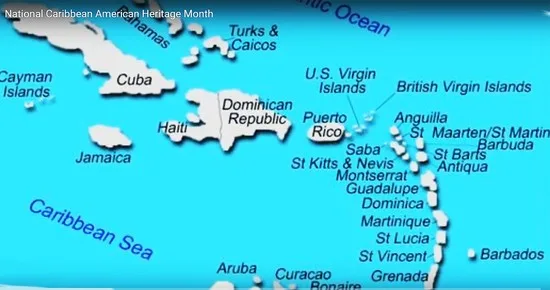
~~~~~~~~~~~~~~~~~~~~~~~~~~~~~~~~~~~~~~~~~~~~~~~~
Voices & Soul
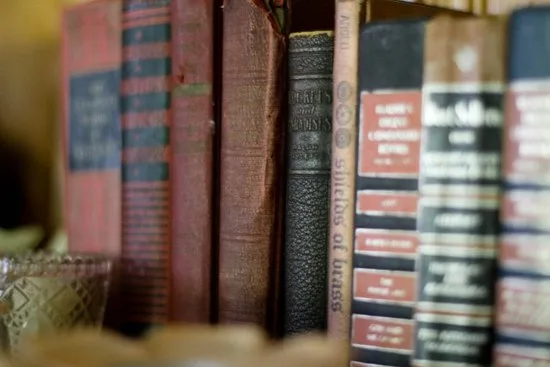
by Justice Putnam, Black Kos Poetry Editor
(“The Gaza Strip refers to a narrow strip of land wedged between Israel and Egypt on the Mediterranean Sea. It forms the smaller of the two Palestinian territories – the other being the West Bank. After Israel declared its statehood in 1948, Egypt controlled the Gaza Strip for nearly two decades.”
– Yasmine Salam, NBC associate producer)
“If it were possible to know the outcome of every journey, few journeys would be undertaken,” Farouk Hazim said into the cell phone. “But I know the outcome of this journey. There is nothing mysterious about it. So I just hit the turn signal and turn right at the end of the off ramp.”
I could hear an angry buzz in reply from the cell as Farouk held it away from his ear. He looked at me and smiled. After several moments he let a small silence elapse and then put the cell back to his ear,
“Do not worry. I will off-load by 10 am,” Farouk was grinning, “I have my top helper today.”
Farouk closed his cell and put it in the holder. He shifted the big semi and changed lanes. He checked both side mirrors and continued our conversation.
“It’s all a matter of what you first notice in life,” he said, “at each benchmark, what do you notice?’
I didn’t hear his statement as a question at first, but finally I realized his request,
“I wrote a poem about that issue,” I proclaimed, unconsciously full of myself, “I wrote about an argument of which came first; Light or Sound. For me the first sound was a heartbeat.”
“Aha!” Farouk Hazim exclaimed loudly, “That is very important. You are a Romantic, be very careful my friend,” he lowered his voice in seriousness, “as strong and intelligent as you are, Romantics have a high death rate.”
He laughed in his singular, Farouk Hazim manner. If you didn’t know that Farouk came from Lebanon, you’d think he was descended from Zorba the Greek.
“None of us escape what we’re born into,” Farouk continued, “we can move from place to place, we can rub elbows with people of different classes, one can do any number of things to escape. But we can never escape.”
“I always felt the great equalizer,” I interjected, “is education. Social mobility is attained with education.”
Farouk laughed loud and long again. His eyes were gleaming when he responded,
“Yes!” he was breathless, “You are very correct. The thing about education, though, is that the more of it you have, the more you know that we can never escape that which we’re born into!” Farouk laughed and laughed.
“But I don’t understand,” I said, truly confused. “I always cite you as an example of what can be attained. I mean, look at you, ten years ago you were cleaning offices and now you own your own trucking firm. Your kids go to private schools, your wife is beautiful.”
“It still does not matter,” Farouk Hazim was shaking his head, “ there is no escape. Not for you, not for me, not for my children or my beautiful wife.”
Farouk checked his side mirror as he shifted gears. He was silent for a long moment and then continued,
“The first sounds I heard were bombs exploding in my village. The first pain I had was from shrapnel in my leg. The first thing I saw was a rifle firing. The first time I met other people was at a funeral. Aha!” Farouk suddenly said, “we have arrived!”
I looked up and saw the exit sign. Farouk turned right at the end of the off ramp. He slowly built compression in the big semi and shifted gears as we approached the city limit sign, welcoming us to Terra Azul. Everything looked familiar, as if I was born into it.
We passed the sign and I had a sinking feeling.
Written in small, graffiti-like letters next to the Chamber of Commerce plaque was the invocation,
“Death to All Who Enter Here.”
~~~~~~~~~~~~~~~~~~~~~~~~~~~~~~~~~~~~~~~~~~~~~~~~
~~~~~~~~~~~~~~~~~~~~~~~~~~~~~~~~~~~~~~~~~~~~~~~~~~~~~~~~~~~~~~~~~~~~~~~
